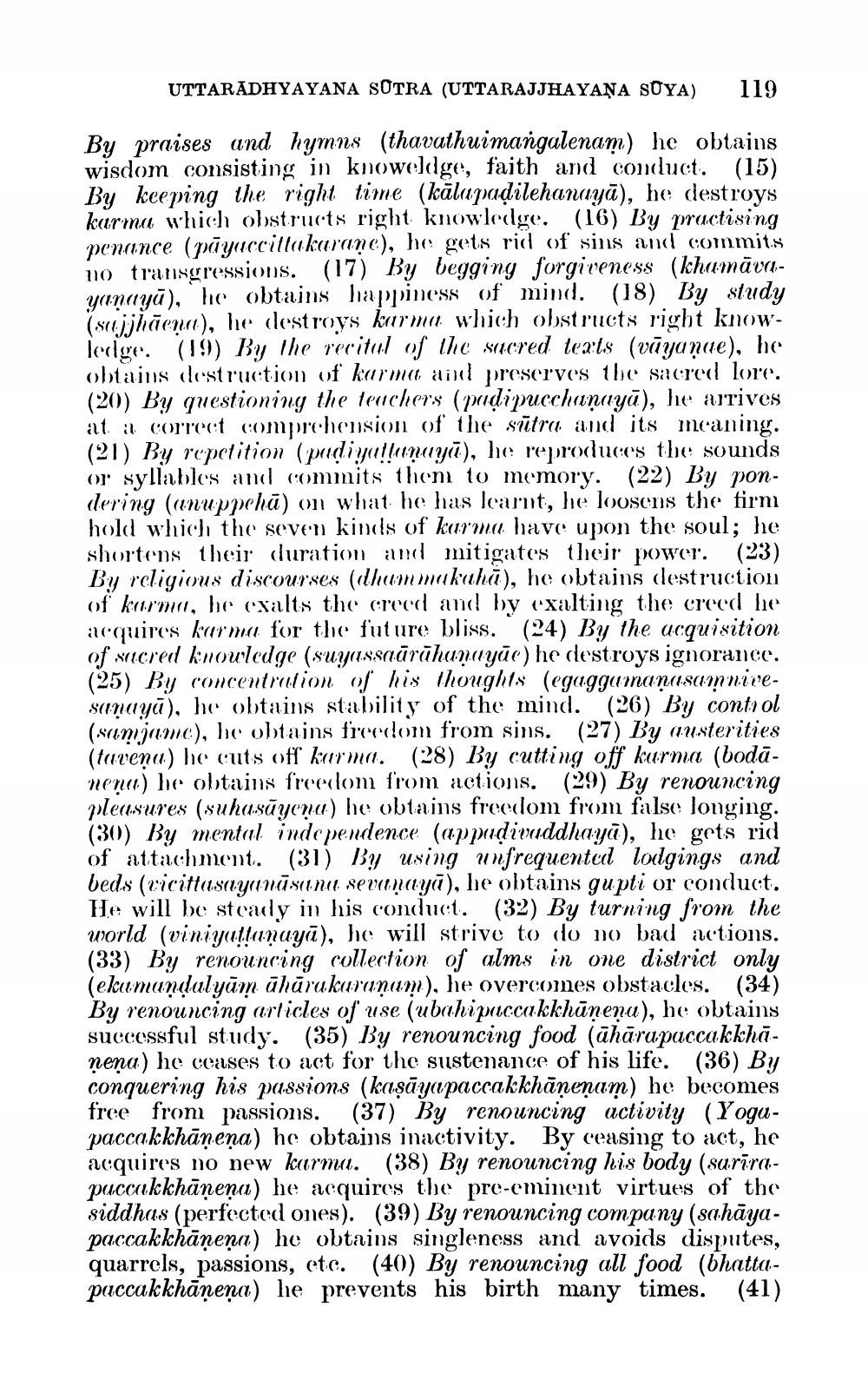________________
UTTARADHYAYANA SUTRA (UTTARAJJHAYANA SUYA) 119
By praises and hymns (thavathuimangalenam) he obtains wisdom consisting in knoweldge, faith and conduct. (15) By keeping the right time (kālapaḍilehanayā), he destroys karma which obstructs right knowledge. (16) By practising penance (payaccittakarane), he gets rid of sins and commits no transgressions. (17) By begging forgiveness (khamāvayanaya), he obtains happiness of mind. (18) By study (sajjhaena), he destroys karma which obstructs right knowledge. (19) By the recital of the sacred texts (vāyaṇae), he obtains destruction of karma and preserves the sacred lore. (20) By questioning the teachers (padipucchanayā), he arrives at a correct comprehension of the sutra and its meaning. (21) By repetition (padiyatlanayā), he reproduces the sounds or syllables and commits them to memory. (22) By pondering (anuppeha) on what he has learnt, he loosens the firm hold which the seven kinds of karma have upon the soul; he shortens their duration and mitigates their power. (23) By religious discourses (dhammakaha), he obtains destruction of karma, he exalts the creed and by exalting the creed he acquires karma for the future bliss. (24) By the acquisition of sacred knowledge (suyassaārāhanayāe) he destroys ignorance. (25) By concentration of his thoughts (egaggamanasamnivesanaya), he obtains stability of the mind. (26) By control (samjame), he obtains freedom from sins. (27) By austerities (tavena) he cuts off karma. (28) By cutting off kurma (bodānena) he obtains freedom from actions. (29) By renouncing pleasures (suhasuyena) he obtains freedom from false longing. (30) By mental independence (appadivuddhaya), he gets rid of attachment. (31) By using unfrequented lodgings and beds (vicittasayanāsana sevaṇayā), he obtains gupti or conduct. He will be steady in his conduct. (32) By turning from the world (viniyattanaya), he will strive to do no bad actions. (33) By renouncing collection of alms in one district only (ekumandalyām āhārakaranum), he overcomes obstacles. (34) By renouncing articles of use (ubahipaccakkhānena), he obtains successful study. (35) By renouncing food (aharapaccakkhānena) he ceases to act for the sustenance of his life. (36) By conquering his passions (kaṣāyapaccakkhāṇenam) he becomes free from passions. (37) By renouncing activity (Yogapaccakkhānena) he obtains inactivity. By ceasing to act, he acquires no new karma. (38) By renouncing his body (sarirapaccakkhanena) he acquires the pre-eminent virtues of the siddhas (perfected ones). (39) By renouncing company (sahāyapaccakkhanena) he obtains singleness and avoids disputes, quarrels, passions, etc. (40) By renouncing all food (bhattapaccakkhānena) he prevents his birth many times.
(41)




